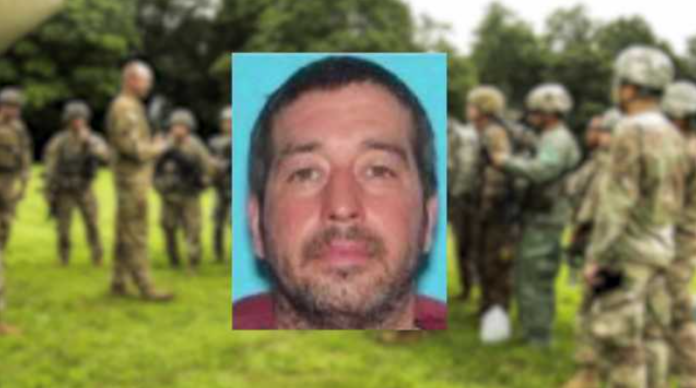A statewide awareness alert was sent out to law enforcement officials in Maine last month regarding “veiled threats” made by U.S. Army reservist Robert Card. This alert was meant to warn authorities to be on the lookout for Card, who had made threats against his base and fellow soldiers.
According to Jack Clements, the police chief in Saco, a visit was made to Card’s home and extra patrols of the base were put in place, but no signs of Card were found. Sagadahoc County Sheriff Joel Merry also confirmed that his department received a tip from the Army Reserve about Card’s threats and a statewide alert was sent out, but they were unable to locate him when they visited his home.
The military declined to comment on whether the threats relayed in September were new or the same ones that led to Card’s involuntary mental health commitment in July. This commitment came after he exhibited erratic behavior and made threats while at an Army training exercise near West Point, New York. The case raises questions about how various entities, from the military to local law enforcement, handled the red flags that preceded the massacre.
Saco police Chief Clements defended his department’s response to the alert, stating that they had received a “generic thing” and that his officers diligently kept an eye on the base for any sign of Card. However, the New York State Police have not commented on their interaction with Card and have refused to release any reports or body-camera footage.
Clements did note that his department receives many similar alerts and it is impossible to investigate them all. But the fact that Card’s red flags were not taken more seriously needs to be addressed. While Maine does not have a red flag law, it does have a “yellow-flag” law which would allow police to petition a judge to remove firearms from a potentially dangerous individual if a medical practitioner deems them to be a threat. It is unclear if this law was used in Card’s case.
Some experts, such as Jonathan Crisp, a former army lawyer, believe that State Police should have reported Card’s mental health commitment to a military database in order to prevent him from purchasing a firearm. But Maine Department of Public Safety Commissioner Michael Sauschuck stated that while Card had a history of mental illness, there was no evidence that he had ever been involuntarily committed.
The case of Robert Card raises questions about the effectiveness of current red flag laws and the collaboration between various law enforcement agencies. Jody Madeira, an Indiana University law professor, believes that someone failed to take action when Card’s threats and mental health evaluation should have triggered a yellow flag seizure of his guns.
In the end, Card took the lives of 18 people and wounded 13 others in a mass shooting, before taking his own life. This tragedy highlights the need for a closer look at the handling of red flags and possible mental health interventions that could prevent future mass shootings.


